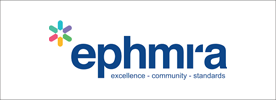
From the onset of adolescence, to pregnancy, and then through menopause and beyond, these healthcare professionals support women throughout every stage of their lives. Over the last few years the women’s health market in the US has experienced exponential growth, creating new opportunities for stakeholders across the healthcare ecosystem and driving a significant increase in market research in the area. In this article, we’ll explore who OBGYNs are, the challenges they face professionally, and how efficient recruitment solutions can overcome barriers for participation in women’s health market research.
OBGYNs’ Challenges
OBGYNs are healthcare professionals who diagnose, treat, and help prevent diseases affecting women, particularly (but not exclusively) those affecting the reproductive system. In common with those working in other specialties, OBGYNs struggle to balance their demanding workload with their need for personal and family time. In a recent survey by Medscape, healthcare professionals shared their perspectives on this ongoing struggle for balance.
Key findings include:- 54% of would accept less pay for better work-life balance
- 42% struggle to manage conflicting work and parenting responsibilities
- 52% do not try to limit their time online outside of work
- 56% spend 2-4 hours per day on the internet for personal use
In 2023, despite inflation impacting the economy, pay increases amongst physicians remained steady. However, a growing concern has emerged: professionals in the industry, including OBGYNs, are questioning whether their salaries adequately compensate for the stress and personal sacrifices they endure. The survey also collected feedback on their compensation packages:
- 68% say most physicians are underpaid in the US
- 58% say their pay did not match up with their job expectations
- 39% supplement their income with extra work
- The most rewarding part of the job is gratitude from / relationships with patients (32%), followed by being good at what they do (29%), and making the world a better place (18%)
- The most challenging part of the job is having to work long hours (22%), dealing with difficult patients (15%), and worrying about legal action (14%)
Recruiting OBGYNs for Market Research
Understanding their challenges and aspirations is crucial for implementing an effective recruitment strategy in market research. We caught up with m360 Research’s (a sister company of M3 Global Research) industry experts to gather their five essential tips for recruiting this audience for studies.
- Use a dedicated physician panel
- Develop custom recruitment strategies
- Offer competitive compensation
- Provide flexible participation
- Emphasise the importance of their insights
By recruiting within a community specifically built for healthcare, such as m-panels, you can easily access OBGYNs in the United States who have in-depth knowledge and expertise in women’s health. m-panels employs a robust pre-screening technology with profiling questions to ensure you can recruit respondents who precisely match your study criteria, whether it’s related to genito-urinary medicine, maternal and fetal, reproductive endocrinology, or infertility.
When qualifying criteria is very specific, custom recruitment strategies can improve your recruitment efforts. Implementing referral fees, for example, can motivate OBGYNs to refer colleagues from their professional network. In addition to this, personalised email campaigns, targeted phone recruitment, and strategic use of text messages can also boost your recruitment efforts tailored to women’s health studies.
When designing your recruitment strategies, ensure that your study compensation reflects the value of OBGYNs’ time and expertise. Competitive pay can address their concerns about being underpaid and increase willingness to participate.
Design research studies with flexible participation times and formats that can accommodate ObGyns busy schedules. Options like short surveys, quick interviews, and online focus groups are effective formats that fit into their professional commitments.
Highlight the importance of OBGYNs’ insights in driving positive changes in patient care, medical practices, and overall healthcare outcomes. Emphasising the meaningful impact of their participation can foster greater engagement and commitment to the research study.
Conclusion
Despite facing challenges such as work-life balance issues and concerns over compensation, OBGYNs remain committed to their profession, driven by the meaningful impact they make on patients’ lives. Therefore, engaging OBGYNs in women’s health market research is appropriate but requires tailored strategies that respect their time constraints and professional commitments. Utilising dedicated physician panels, custom recruitment approaches, offering competitive compensation, providing flexible participation options, and highlighting the significance of their insights are crucial steps toward fostering collaboration. These efforts not only enhance research quality but also empower OBGYNs to contribute effectively to advancements in women’s healthcare.
Are you interested in learning more?





